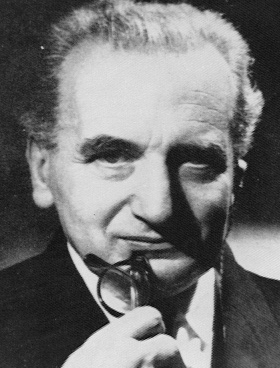(1881 – 1963)
Aeronautical engineer, mathematician. ‘Father of Supersonic Flight’.
Hungarian-American mathematician, aerospace engineer and physicist who was active primarily in the fields of aeronautics and astronautics. He is responsible for many key advances in aerodynamics, notably his work on supersonic and hypersonic airflow characterization. He is regarded as the outstanding aerodynamic theoretician of the twentieth century.
He was one of the creators of scientific fluid mechanics. Co-founded the Jet Propulsion Laboratory.
Invented: first helicopter able to maintain hovering flight (though on a tether), first rocket to reach interstellar space.
Credited with: theories of non-elastic buckling, unsteady wakes in circum-cylinder flow, stability of laminar flow, turbulence, airfoils in steady and unsteady flow, boundary layers, supersonic aerodynamics, additional contributions (in the fields of elasticity, vibration, heat transfer and crystallography).
